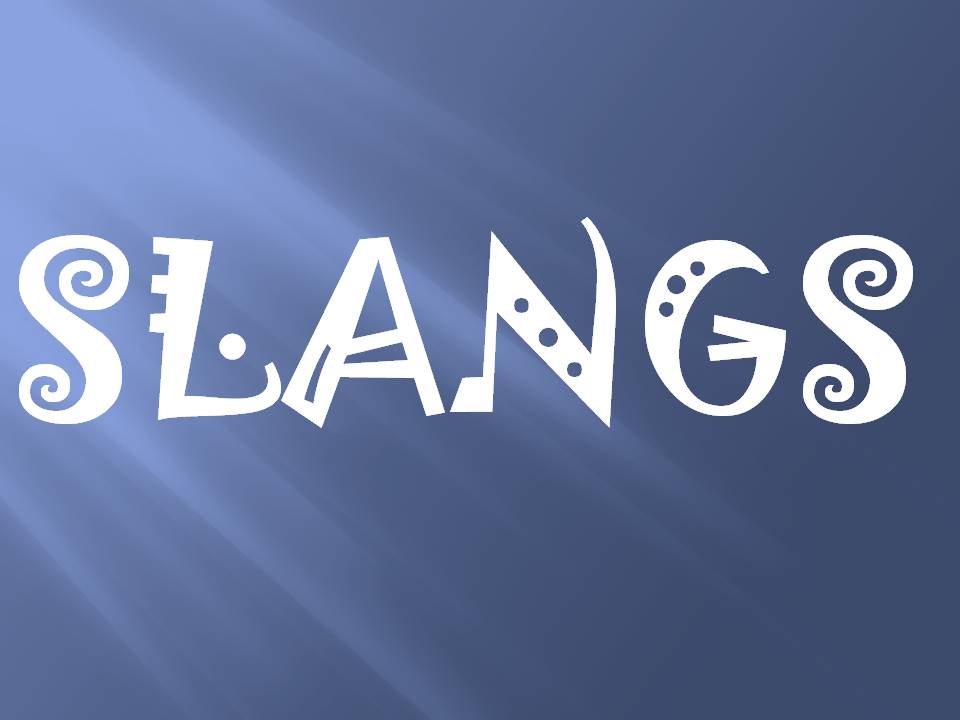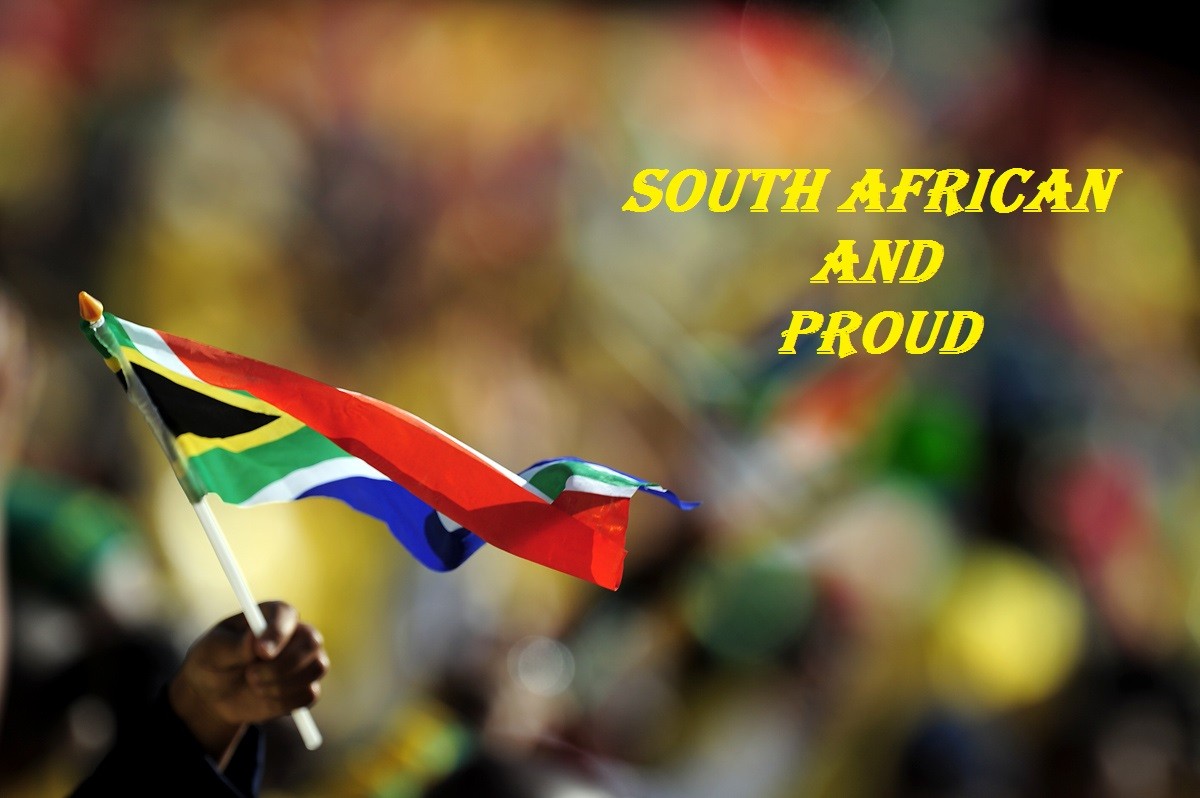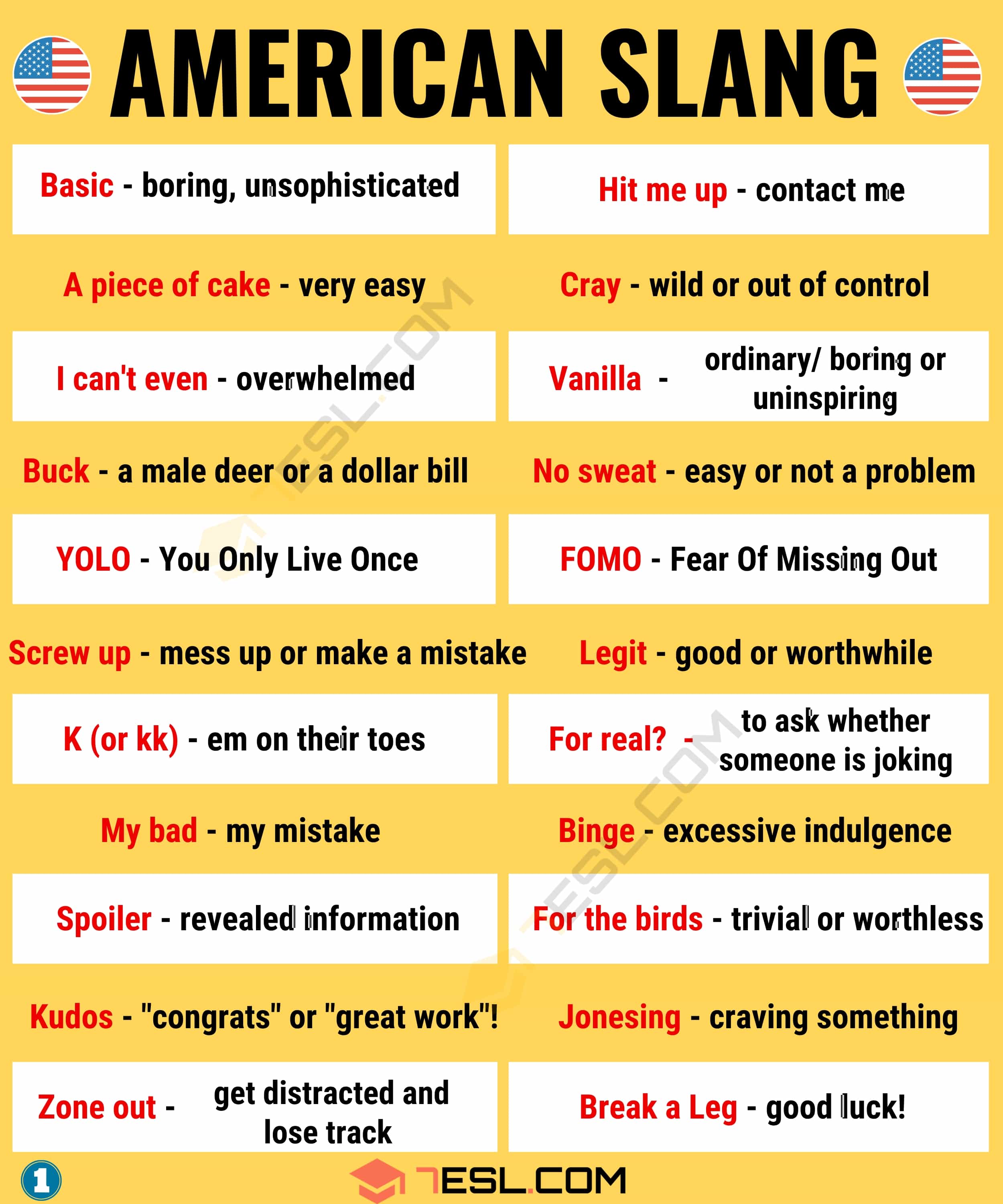South African slang is a vibrant and ever-evolving part of the country's rich linguistic tapestry. "20 Most Common South African Slangs And" is a comprehensive guide to some of the most widely used slang terms in South Africa. These terms are not only used in everyday conversation, but they also provide a unique insight into the country's culture and history.
For example, the term "dop" means "alcohol" and is derived from the Afrikaans word for "drink." This term reflects the importance of alcohol in South African culture, as well as the country's history of alcohol abuse.
This article will explore the origins, meanings, and usage of these 20 common South African slang terms, providing readers with a deeper understanding of the country's linguistic diversity and cultural heritage.
- Camila Araujo Nudes Facts Misconceptions And The Truth Behind The Headlines
- Marie Temara Nudes Debunking Myths And Exploring The Truth
20 Most Common South African Slangs And
South African slang is a vibrant and ever-evolving part of the country's rich linguistic tapestry. These slang terms are not only used in everyday conversation, but they also provide a unique insight into the country's culture and history.
- Origins
- Meanings
- Usage
- Cultural significance
- Historical context
- Social implications
- Regional variations
- Influence on popular culture
- Educational value
- Future of South African slang
These key aspects provide a comprehensive framework for understanding the significance and impact of South African slang. They explore the origins, meanings, usage, and cultural significance of these terms, as well as their historical context, social implications, and influence on popular culture. By examining these aspects, we gain a deeper appreciation for the richness and diversity of South African slang, and its importance in shaping the country's linguistic and cultural landscape.
Origins
The origins of South African slang are diverse and fascinating, reflecting the country's rich history and cultural influences. These slang terms have been shaped by a variety of factors, including:
- Discover The World Of Xxx Small Girl A Comprehensive Guide
- Facecheck Id Your Ultimate Guide To Identity Verification Solutions
- Indigenous languages
Many South African slang terms have their roots in indigenous languages, such as isiZulu, isiXhosa, and Afrikaans. For example, the term "dop" (meaning "alcohol") comes from the Afrikaans word for "drink." - Colonial influences
South Africa's colonial history has also had a significant impact on its slang. Terms such as "robot" (meaning "traffic light") and "bakkie" (meaning "pickup truck") are derived from English and Dutch, respectively. - Popular culture
Popular culture, including music, film, and television, has also contributed to the development of South African slang. Terms such as "chillax" (meaning "relax") and "bling" (meaning "expensive jewelry") have become popular in recent years. - Social and political factors
Social and political factors have also played a role in the development of South African slang. Terms such as "apartheid" and "ubuntu" reflect the country's history of racial segregation and its commitment to reconciliation.
These diverse origins have contributed to the richness and diversity of South African slang, which is a vibrant and ever-evolving part of the country's linguistic and cultural landscape.
Meanings
The meanings of South African slang terms are as diverse as their origins. They can be literal, figurative, or even symbolic. Some slang terms have multiple meanings, depending on the context in which they are used.
- Literal meanings
Some South African slang terms have literal meanings. For example, the term "dop" literally means "drink." - Figurative meanings
Other South African slang terms have figurative meanings. For example, the term "bliksem" literally means "lightning," but it is often used to express surprise or anger. - Symbolic meanings
Some South African slang terms have symbolic meanings. For example, the term "ubuntu" symbolizes the interconnectedness of all human beings.
The meanings of South African slang terms are constantly evolving, reflecting the changing social and cultural landscape of the country. New slang terms are constantly being created, while others fall out of use. However, the most common South African slang terms remain an important part of the country's linguistic and cultural heritage.
Usage
The usage of South African slang terms is an essential component of understanding their significance and impact. These terms are not merely linguistic curiosities; they are actively used in everyday conversation, across diverse social and cultural contexts. The widespread usage of these slang terms shapes the way South Africans communicate and interact with each other.
Real-life examples of the usage of these slang terms abound. For instance, the term "dop" is commonly used to refer to alcohol, particularly in informal settings. The term "bliksem" is often employed to express surprise or anger, while "ubuntu" is used to convey the interconnectedness of all human beings. These terms are deeply ingrained in South African speech, adding color and nuance to everyday conversations.
Understanding the usage of South African slang terms has practical applications in various fields. For instance, in education, teachers can incorporate these terms into their lessons to make learning more relatable and engaging for students. In business, understanding slang can help professionals build stronger relationships with South African clients and colleagues. Moreover, in the media, accurate portrayal of slang usage can enhance the authenticity and credibility of reporting.
Cultural significance
The cultural significance of the 20 most common South African slangs and idioms lies in their ability to reflect the country's unique history, values, and experiences. They offer a glimpse into the shared cultural identity of South Africans, transcending linguistic and regional boundaries.
- Expression of identity
Slangs and idioms are often used to express a sense of belonging to a particular group or community. In the South African context, common slangs like "dop" and "bliksem" instantly identify the speaker as a local, fostering a sense of camaraderie and shared experience.
- Reflection of history
Many South African slangs and idioms have their roots in the country's turbulent history. For example, the term "apartheid" is a grim reminder of the era of racial segregation, while "ubuntu" embodies the values of unity and interconnectedness that have shaped South Africa's post-apartheid society.
- Cultural commentary
Slangs and idioms can also serve as a form of cultural commentary, reflecting the hopes, fears, and aspirations of a society. For instance, the term "load shedding" humorously captures the frustration and inconvenience caused by the country's electricity shortages.
- Preservation of heritage
By passing down slangs and idioms from generation to generation, South Africans are actively preserving their cultural heritage. These terms embody the collective memory and experiences of the nation, ensuring that they are not forgotten.
Ultimately, the cultural significance of the 20 most common South African slangs and idioms lies in their power to connect people, reflect history, provide cultural commentary, and preserve heritage. They are an integral part of the South African identity and a valuable window into the country's rich cultural tapestry.
Historical context
The historical context of South African slangs plays a significant role in understanding their meanings, usage, and cultural significance. Here are four key facets of the historical context of the 20 most common South African slangs and idioms:
- Apartheid Era
Many South African slangs and idioms emerged during the apartheid era, reflecting the social and political realities of the time. For example, the term "pass" refers to the document that black South Africans were required to carry under apartheid laws.
- Colonial Influences
South Africa's colonial history has also influenced its slang. Terms such as "robot" (meaning "traffic light") and "bakkie" (meaning "pickup truck") are derived from English and Dutch, respectively.
- Indigenous Languages
South African slangs and idioms have also been shaped by indigenous languages. For example, the term "dop" (meaning "alcohol") comes from the Afrikaans word for "drink."
- Social and Cultural Changes
Slangs and idioms also reflect the social and cultural changes that have taken place in South Africa. For example, the term "load shedding" refers to the scheduled power outages that have become common in recent years.
Understanding these facets of historical context is essential for fully appreciating the meanings and significance of the 20 most common South African slangs and idioms. They provide a window into the country's past and present, and help us to better understand the culture and experiences of its people.
Social implications
The social implications of "20 Most Common South African Slangs And" are multifaceted, encompassing various aspects of society and its interactions. Understanding these implications provides a deeper perspective on the role and impact of slang within the South African social context.
- Group identity
The use of slang can foster a sense of group identity and belonging. It allows individuals to identify with a particular social group or subculture, creating a shared sense of community.
- Social cohesion
Slang can contribute to social cohesion by facilitating communication and bridging cultural gaps. It enables individuals from different backgrounds to connect and interact on a more informal level.
- Social stratification
Conversely, slang can also perpetuate social stratification by reinforcing group boundaries and excluding those who are not familiar with the specific slang terms. It can create a sense of "in-group" versus "out-group" dynamics.
- Language evolution
The adoption of slang into mainstream language reflects the dynamic and evolving nature of language. It demonstrates the influence of popular culture, youth culture, and social movements on shaping language usage.
These social implications highlight the complex interplay between slang and society. They demonstrate how slang can both unite and divide, shape social norms, and contribute to the evolution of language itself. Understanding these implications provides a deeper appreciation for the role of slang in South African society and its impact on social dynamics.
Regional variations
Within the diverse linguistic landscape of South Africa, regional variations play a significant role in shaping the usage and meanings of the 20 most common South African slangs and idioms. These regional variations reflect the country's rich cultural heritage, geographic diversity, and distinct linguistic communities.
- Geographic distribution
Slang terms can vary significantly across different regions of South Africa. For example, the term "robot" (meaning "traffic light") is commonly used in Gauteng and KwaZulu-Natal, while "traffic light" is more prevalent in the Western Cape and Eastern Cape.
- Language influences
Regional variations in slang are often influenced by the dominant languages spoken in a particular area. For example, in the Afrikaans-speaking regions of the Western Cape, slang terms such as "gatvol" (meaning "fed up") and "moerse" (meaning "very") are widely used.
- Cultural factors
Cultural factors can also contribute to regional variations in slang. For instance, in the Zulu-speaking regions of KwaZulu-Natal, the term "ubuntu" (meaning "humanity") holds a particularly strong cultural significance and is frequently used in everyday speech.
- Social context
The social context of a region can influence the usage of slang terms. In urban areas, slang is often more prevalent and innovative, while in rural areas, more traditional slang terms may be used.
Understanding regional variations in slang is essential for effective communication and cultural exchange in South Africa. It allows individuals to adapt their language use to different contexts and to avoid misunderstandings that may arise from unfamiliar slang terms. Furthermore, recognizing regional variations in slang enriches our appreciation of the diversity and dynamism of South African language and culture.
Influence on popular culture
The 20 most common South African slangs and idioms have a profound influence on popular culture, shaping the way South Africans communicate, express themselves, and connect with one another. This influence manifests in various forms, including music, film, television, and social media.
Slangs and idioms add a unique flavor and authenticity to South African popular culture. In music, artists incorporate slang terms into their lyrics to connect with local audiences and create a sense of cultural identity. For example, the popular hip-hop group Die Antwoord frequently uses slang terms such as "bliksem" (meaning "lightning") and "gatvol" (meaning "fed up") in their songs.
In film and television, slang is employed to create realistic and relatable characters. By using slang, actors can better portray the everyday speech patterns and cultural nuances of South Africans. For instance, in the popular soap opera "Generations," the characters often use slang terms such as "sharp" (meaning "stylish") and "chilled" (meaning "relaxed").
Social media has become another major platform for the dissemination of South African slangs and idioms. On social media platforms such as Twitter and Instagram, users employ slang to express their thoughts and emotions in a concise and humorous way. This has led to the creation of new slang terms and the popularization of existing ones.
Understanding the influence of slang on popular culture is essential for effective communication and cultural exchange in South Africa. It allows individuals to better understand the nuances of South African society and to appreciate the richness and diversity of its cultural expressions.
Educational value
The educational value of "20 Most Common South African Slangs and Idioms" lies in its potential to enhance linguistic skills, foster cultural understanding, promote social inclusivity, and preserve cultural heritage.
- Enhancing linguistic skills
Learning and understanding slang terms can expand vocabulary, improve communication abilities, and enhance overall language proficiency in South Africa.
- Fostering cultural understanding
Slangs and idioms provide insights into the cultural values, beliefs, and experiences of South Africans, fostering a deeper understanding of the country's diverse heritage.
- Promoting social inclusivity
By becoming familiar with slang terms, individuals can bridge cultural gaps, communicate more effectively, and foster a sense of belonging within South African society.
- Preserving cultural heritage
Documenting and preserving these slang terms contributes to the preservation of South Africa's rich linguistic and cultural heritage for future generations.
Understanding the educational value of the 20 most common South African slangs and idioms empowers individuals to navigate the complexities of South African society, communicate effectively, appreciate its cultural diversity, and contribute to the preservation of its linguistic heritage.
Future of South African slang
The future of South African slang is inextricably linked to the ongoing evolution of the country's linguistic and cultural landscape. As the 20 most common South African slangs and idioms continue to shape communication and cultural expression, their future trajectory will be influenced by a range of factors, including globalization, technology, and social change.
- Influence of globalization
Globalization is leading to increased interaction between South Africa and other parts of the world, resulting in the adoption of new slang terms from other languages and cultures. For example, the term "selfie" has become widely used in South Africa, reflecting the global popularity of this form of self-portrait photography.
- Role of technology
Technology is playing a significant role in the dissemination and evolution of South African slang. Social media platforms such as Twitter and Instagram have become breeding grounds for new slang terms, which can spread rapidly across the country. Additionally, the use of messaging apps like WhatsApp has facilitated the creation of group chats where slang is frequently used and shared.
- Social and cultural changes
Social and cultural changes within South Africa are also influencing the future of slang. The growing youth population is a major driver of slang innovation, as young people often create and adopt new slang terms to express their unique experiences and perspectives.
- Preservation of heritage
Despite the influence of globalization and technology, there is also a growing movement to preserve and celebrate South African slang as part of the country's cultural heritage. Initiatives such as the "Slangopedia" project are documenting and archiving slang terms to ensure that they are not lost to future generations.
The future of South African slang is a dynamic and ever-evolving landscape. As the country continues to navigate the challenges and opportunities of globalization, technology, and social change, its slang will undoubtedly continue to adapt and reflect the unique experiences and perspectives of its people.
In exploring the "20 Most Common South African Slangs and Idioms," this article has provided a comprehensive analysis of their meanings, origins, usage, cultural significance, historical context, social implications, regional variations, influence on popular culture, educational value, and future trajectory. A key finding is that these slang terms are not merely linguistic curiosities but rather vibrant expressions of South African identity, reflecting the country's unique history, values, and experiences.
Two main points emerge from this exploration: firstly, South African slangs and idioms are deeply rooted in the country's cultural heritage and social dynamics, serving as a window into the collective consciousness of its people. Secondly, these slang terms are constantly evolving, influenced by globalization, technology, and social change, ensuring their continued relevance and vitality in shaping South African communication and cultural expression.
As we reflect on the significance of "20 Most Common South African Slangs and Idioms," we recognize their importance in fostering a sense of national identity, bridging cultural gaps, and preserving linguistic diversity. Understanding and embracing these slang terms allows us to engage more deeply with South African culture and society, appreciating its richness and complexity.- Masa49 Exploring The Unique Aspects And Importance Of The Masa49 Concept
- Jasi Bae Naked A Comprehensive Exploration


